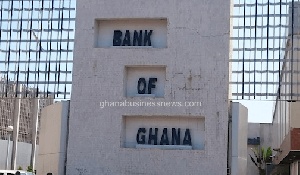- Home - News
- Elections 2024
- News Archive
- Crime & Punishment
- Politics
- Regional
- Editorial
- Health
- Ghanaians Abroad
- Tabloid
- Africa
- Religion
- Photo Archives
- Press Release
General News of Thursday, 17 April 2025
Source: www.ghanawebbers.com
Closing the Gap: How Technology is Curbing Tax Revenue Leakages in Ghana
Tax Revenue Leakages in Ghana: An Overview
Ghana faces ongoing issues with tax revenue leakages. These leakages hinder the government's ability to fund essential services and development projects.
Key sectors affected include petroleum, gold, customs, and port operations. Underreporting, evasion, and weak monitoring systems lead to significant revenue losses.
To tackle these challenges, the government launched the Revenue Assurance and Compliance Enforcement (RACE) program. This initiative uses technology to improve revenue collection.
Strategic Mobilization Limited (SML) plays a crucial role in enhancing tax compliance through advanced technologies. This article examines tax revenue leakages in Ghana's petroleum and mining sectors. It also highlights SML's technological innovations that reduce these leakages.
---
Revenue Leakages in Key Sectors
1. Petroleum Sector
The petroleum sector is vital for Ghana's tax revenue but is prone to leakages. Discrepancies exist between fuel volumes reported by the National Petroleum Authority (NPA) and those recorded by the Ghana Revenue Authority (GRA).
A report from 2019-2020 showed a data gap of 3.2 billion litres. This gap resulted in an estimated loss of GH₵4.6 billion due to underreporting and fuel diversion.
SML introduced the Electronic Metering Management System (EMMS) to address this issue. The system tracks fuel receipts, distributions, and sales in real-time.
Since its launch, over 14.1 billion litres of petroleum products have been tracked, generating an additional GH₵20.3 billion in tax revenue.
---
2. Gold and Mining Sector
The gold mining sector also suffers from significant revenue leakages. Underreporting of production and smuggling deprive Ghana of essential funds.
Ineffective monitoring allows for gold export diversions with limited checks on actual amounts produced.
Although SML focuses on petroleum, its real-time monitoring model can apply to mining too. Similar systems could track gold production accurately for taxation purposes.
Integrating blockchain technology could enhance transparency and reduce fraud risks in mineral tracking.
---
3. Port Operations and Customs
Port operations are another source of revenue leakages due to underreported goods passing through ports. The GRA reports inaccuracies leading to substantial customs duty losses over time.
To combat this issue, Ghana implemented the Integrated Customs Management Systems (ICUMS). This system integrates data from various agencies for accurate reporting and timely tax collection.
While ICUMS has improved port management significantly, SML’s Transaction Audit enhances continuous monitoring of goods classification and valuation using advanced analytics.
---
Global Examples of Technological Solutions
Countries worldwide have successfully used technology to reduce tax revenue leakages:
- Brazil: The Nota Fiscal Eletrônica requires electronic invoices for all sales transactions.
- India: The GST network tracks goods from manufacturers to consumers.
- South Africa: Real-time data monitors goods movement across borders through Customs Modernization Program.
---
Technologies Deployed in Ghana
Ghana has adopted several technological advancements with varying success:
- Digital Tax Filing Platforms: Online platforms like Ghana.gov simplify filing processes.
- Data Integration: The RACE Program integrates various systems for seamless data flow among agencies.
- Real-Time Monitoring Systems: Technologies like EMMS ensure accurate reporting of petroleum product volumes while improving compliance efforts.
---
Conclusion
Revenue leakages pose a significant challenge for Ghana's economy; however, technology offers promising solutions. SML’s innovative approaches have notably reduced discrepancies in the petroleum sector while enhancing tax collection efforts overall.
As Ghana expands its use of technology against revenue leakages, further improvements are possible—especially within mining and customs sectors. Global examples show that tech-driven solutions can effectively curb these issues; thus continued investment is crucial for success moving forward.
*Written by: Dr. Eric Boachie Yiadom*
Senior Lecturer/Financial Economist
Banking and Finance Department
University of Professional Studies, Accra











